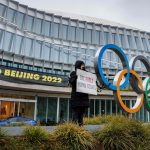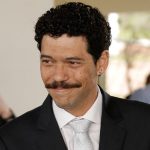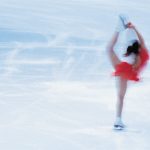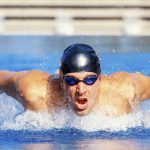Recently, UConn Today spoke with Eli Wolff, Neag School of Education Sport Management instructor and sport and human rights expert. Wolff offers his perspective on how and why athletes are being silenced, what they can do to combat this, and ultimately, what needs to shift to allow athletes to perform their job, but also exercise their right to free expression.
Recently, UConn Today spoke with Eli Wolff, Neag School of Education Sport Management instructor and sport and human rights expert. Wolff offers his perspective on how and why athletes are being silenced, what they can do to combat this, and ultimately, what needs to shift to allow athletes to perform their job, but also exercise their right to free expression.
Cécile Sophie Pieper, who earned a master’s degree in educational psychology as a redshirt senior, will again play for Germany and try to win another Olympic medal to join the Bronze she earned in field hockey during the 2016 Summer Games in Rio de Janeiro.
Luis Ferreira will begin his Ph.D. studies in educational psychology this spring after facing unforeseen obstacles in obtaining a visa to study in the United States. Accepted to UConn’s Neag School of Education in February 2020, he has made tremendous sacrifices to pursue his doctorate, including moving away from his wife and family in Brazil.
Can we train an athlete to make them look like, seem like, act like a hummingbird? Probably not,” Jaci VanHeest said. But, she speculates, with some cellular or genetic tweaks, “can we get more than 4%? Maybe.”
“As Fitbits and other wearable activity monitors change how regular people exercise and track their activity, they’re having similar effects on how Olympians train and recover between workouts,” says Jaci VanHeest, an associate professor in the Neag School of Education at UConn.
Behind the artistry of today’s Olympic figure skaters lies some serious science. A new book by UConn professor Jaci VanHeest will make the research underlying elite skaters’ training accessible for the first time to coaches and athletes everywhere.
As you watch this year’s summer Olympics, pay attention to the athletes from smaller countries. There’s a good reason why some countries manage to produce elite athletes consistently, even though they’re drawing from populations much smaller than those of China, Brazil, or the U.S. They cultivate them differently.
UConn Today (Neag School’s Jaci VanHeest, employed by U.S. Swimming in the early ’90s to identify young swimmers who might become champions, says U.S. sports focuses too much on early success)




